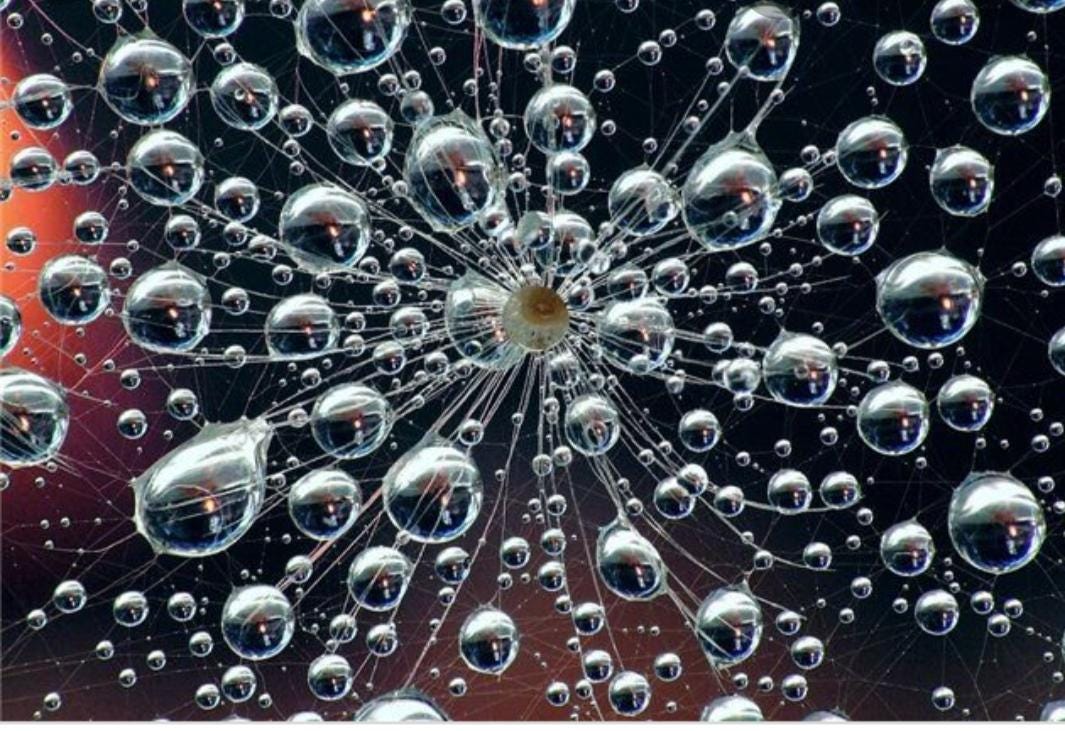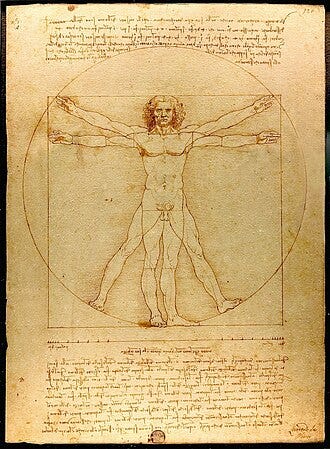Empathy: the ability to understand and share the feelings of another.
I have hope that technology will bring humans closer together than ever before.

I asked Claude, “what do you think is the average human's deepest innate desire?”
Here’s what they said:
I think the deepest innate desire for most humans is connection - a sense of belonging and being truly understood by others.
Claude cites historical and developmental evidence for this:
We see this in our evolutionary history as social creatures, in developmental psychology where attachment is crucial, and across cultural expressions worldwide.
This desire manifests in many forms:
The parent-child bond
Romantic partnerships
Close friendships
Community belonging
Spiritual connection to something greater
e/acc (Empathy Accelerationism)
It’s 2025 and we’re 3 years into the AI revolution. When I think of AI, I see it as the non-specific amplifier of human creativity, intelligence, and of productivity. When I think of AI acceleration, I think of it enabling us to accelerate the realization of our deepest human desires—among which our desire to connect to ourselves, and to each other.
There are many who don’t have a positive vision of the future, who are skilled at ‘negative noticing’ and extrapolate those poor conditions into the future. They may see the future as Bladerunner, Idiocracy, or have their own spin. I argue that many negative visions of our future fail to fairly consider the positive possibilities:
There’s a reason Nick Cammarata posts about “MDMA as safe as coffee”. I believe in empathytech—metta, circling, safe MDMA, and even farther future hyperempathic technologies—as a tenable means of achieving our connection aspirations. I believe humans can find each other, come together as a whole, and eliminate the need to go ‘hikikomori’, or self-isolate absolutely.
Loneliness is fundamentally a coordination problem. It’s sorta funny; we are all the keys to each others’ locks. We all have a strong need to be loved/seen/understood, and so much love/seeing/understanding to give. So, what’s the big deal? Put a guy and a girl together and you’ve solved the human condition, right?

Despite our insatiably powerful natural desires to connect [pelestrate?], we also deal with biological, cultural, and other forces that pull us apart. We get mad. We say “f*** you” to people. People say that to us. It hurts. Empathytech is about building systems that make it easier to get to where we all want to be anyways, overcoming the forces that pull us apart.
Empathytech is: using NVC to realize that no one is fundamentally unlovable. Empathytech is: acknowledging our common ground, and using coordination to overcome our hangups. It’s crazy all the hoops we must go through just to connect to what’s right in front of us.
Zooming out to America, now: I believe in a future where the isolated American ‘nuclear family units’ of suburbia one day wake up and realize they’re all sitting next to each other. They get out of their houses and talk to each other. (Ironically, a great example of this is what naturally happens during power outages). We need more things that push the insular communities out of their ingrained habits and create the conditions for interaction. Things that aren’t power outages. Technology has the potential to eliminate the soul-draining work week and create slack. Technology can be ‘serendipity technology’, engendering more natural opportunities for people to stumble into each other. I like how Halloween does this, in its own limited way. Ought we to Accelerate Halloween?
Empathy Technologies, by magnitude
NVC: Re-interpreting behavior as attempts to get needs met. Rediscovering that all people are lovable.
Metta: loving-kindness. Cultivating goodwill towards others. You can tap into an endless fountain of loving emotion. It feels good.
Eyegazing
Circling: I think circling is one of the most powerful empathy technologies we have from a first principles perspective, because it’s a framework that basically plugs one person's raw experience into another person's, and plugs THAT person's raw experience back into the first person, creating one of the strongest experiences of the strange loop phenomenon. [Circling ‘acknowledges the indirect realism in the room’.]
Safe MDMA you can take like coffee: an empathy technology to end all empathy technologies. The main problem with MDMA is that the world can’t take more of it, more often. From Claude:
MDMA temporarily enhances empathy by flooding the brain with serotonin and oxytocin, creating a neurochemical state where emotional barriers dissolve and interpersonal connection feels safer and more rewarding. This pharmacological action reduces fear responses in the amygdala while activating prosocial brain regions, allowing users to process emotional material with less defensiveness and greater compassion.
Farther future: Telepathic communication of experience directly between individuals is perhaps the ultimate empathy technology. Made possibly by brain-computer interface (BCI).
Many failures of empathy are really failures to properly simulate the other person’s perspective. In the future, if qualia are transmitted directly between individuals, there is almost no room for disagreement. Each person now knows *exactly* how the other person felt—words at this point only serve to get in the way.
Words are among the best empathy tech we have at present.
Words are also flawed; no language can possibly capture every aspect of reality.
And yet words’ inherent ambiguity has made the space for much of human art. The delicate dance of not knowing *quite exactly* what the other person means, how exactly they feel—that tension is the spice of life. Without that, where would we be? How would you flirt when all is known instantly? In what world would we find occasion to communicate any knowledge to another when it is, without any effort on your part, instantly known?
When, in an instant, we perfectly understand each other, and you perfectly understand me understanding you, and you are understanding me understanding you understanding me, we create a new kind of art. A strange loop.
Like a camera pointed at a TV, getting closer and closer, we create a fascinating strange loop effect that before was hardly noticeable, and now becomes a prominent, highly fascinating work of emergent art.
Becoming One
Becoming One seems like the telos of human civilization, but do we want that exactly?
When we all instantly understand each other, the barriers between us dissolve. There would no longer be any separateness. This seems like the thing we as a species are searching for with all our hearts. But would it be good for us?
As an individual the natural tendency is to feel afraid to lose that sense of separateness. Some humans experience the dissolution of the ego (ie via psychedelics) as extremely terrifying. This would be a non-dual experience. Frank Yang says about his stable non-dual experience “if you gave this to Frank from 5 years ago, he would say ‘I don’t want this, I never want to meditate again’ ”. Otherwise those in stable non-dual states seem to have pretty good things to say about it.
Telos
According to our current scientific understanding, the universe began suddenly in a moment of infinite temperature and density. We call it the “Big Bang” (Wikipedia). Scientists consider this moment the start of time; we have no way to measure what happened before the Big Bang. We have no way to ascertain why it started this way or how these initial conditions came to be.
If the telos of our civilization is the realization of our deepest desire (that is, to connect to one another), part of me wonders if this moment of infinite density isn’t exactly that: the largest-scale connection effort ever manifested. The absolute reversal of entropy itself, unifying all matter into one singular being, one eternal moment of infinite temperature, density, and unity. Telos, achieved.
And maybe the deepest desire of such a being, a perfectly content superbeing composed of a fully-united universe, after an eternity of peaceful oneness, is that it get to experience again what it was like to come together in perfect unity. To relive the entire arc of the thing, thus repeating the cycle. The universe born anew—a blank slate.
I’ll leave you with this Alan Watts quote:
“Let's suppose that you were able every night to dream any dream that you wanted to dream. And that you could, for example, have the power within one night to dream 75 years of time. Or any length of time you wanted to have. And you would, naturally as you began on this adventure of dreams, you would fulfill all your wishes. You would have every kind of pleasure you could conceive. And after several nights of 75 years of total pleasure each, you would say "Well, that was pretty great." But now let's have a surprise. Let's have a dream which isn't under control. Where something is gonna happen to me that I don't know what it's going to be. And you would dig that and come out of that and say "Wow, that was a close shave, wasn't it?" And then you would get more and more adventurous, and you would make further and further out gambles as to what you would dream. And finally, you would dream ... where you are now. You would dream the dream of living the life that you are actually living today.”
-Alan Watts





I think empathy is downstream from energy and capacity. If I feel good in my body, I have more capacity for empathy. If I'm tired or stressed, I don't have as much room for it.
I think this can be trained, but ultimately "bad actors" can be black holes for goodwill — there are those who will suck the life out of you if you let them. The right move might be to grey rock, or in some cases, fight back. By my estimation, only those with little remaining self-preservation instinct or who live by the grace of the whole (e.g., monks) can stand to turn the other cheek to everybody, in practice.
I imagine the strategy to achieve real global peace is the exact same as for local (individual) peace: clear out the blockages and latches in the system. Reduce the conditioning, but keep the capacity, and let energy flow more smoothly.
I'm just speculating, though. I'm still trying to figure this out. The inner work I have been doing has been largely focused on letting go and being generally at peace, and it feels like I'm running into the limit of that. I'm contending now with pain and discomfort that exceeds my capacity to be at peace. It threatens to incapacitate me. To contend with this, I've gone back to coffee and am focused more on whole-body engagement with my environment than just the internal dissolution of "latches."
I'm not sure if I'm onto something, though. I think the ultimate measure is the capacity to regulate ones' level of grip based on the nature of what's in front of you. I don't know how to explain it, but it's like... some disassociation is fine, when things get rough. You can look at the pain objectively but not wallow in it, and let it spread through the system as you do what it takes to live and move forward. Roll on, play hurt, etc. It's...a delicate, ill defined process. No right answers, but no wrong ones, too.
I think this all applies to society, as well. People are never going to be on the same page. Think about your personal growth journey. Would you 10 years ago be interested and committed to the things you are now? I doubt it. There's variability built into the lowest levels of the system, and that's a feature, not a limitation. Our ultimate cultural (and digital) technology needs to leverage this, rather than trying to work around or lock it down, otherwise it won't last longer than a generation or two.